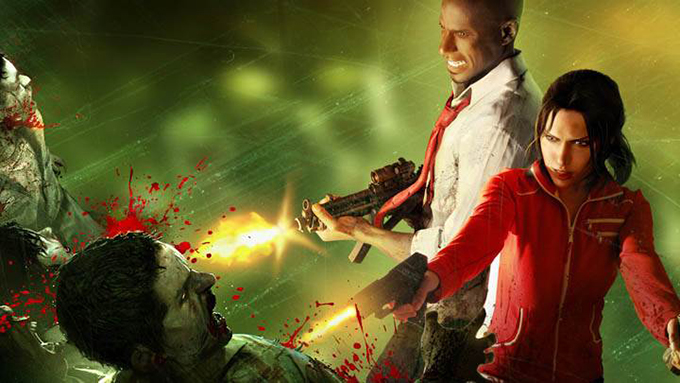
Zombies are monsters of the collective imagination on which many films, television series or video games have been made. These creatures arouse a remarkable attraction among a wide segment of the population.
Movies like World War Z or series like The Walking Dead have had and are widely accepted worldwide, especially among young people, and have broken audience records. Video games like the Resident Evil series have millions of followers and have been successfully adapted as a film saga .
If you write “video games to kill zombies” on the main page of the Google search engine, more than one million results appear. Is it possible to take advantage of this rage that young people around the world experience towards zombies to improve their learning?
David Hunter , a professor of Geography in Seattle, has shown that it is possible. Hunter has created a new learning method: ZBL ( Zombie-Based Learning ). His project has (at the moment) 354 sponsors who have contributed more than $ 11,000.
Learn playing
The game is consubstantial to the human species and one of the basic ways of learning from the brain (we also learn by imitation or trial and error, for example). Playing allows us, since childhood, to experiment with the world around us, and it helps us to understand it.
Playing favors learning in a pleasant way and enhances the establishment of neural connections. When a young child plays with a set of pieces of different shapes and colors and tries to introduce them in a house-shaped box, or cube box, for example (with small holes with the same silhouette and / or color as the pieces), it is developing their spatial capacity and their ability to manipulate.
And the boy does not get tired. You can spend hours playing with the same toy, repeating the same operations over and over again, without getting bored: because you are motivated. Learning fun. That is because the action of playing releases dopamine in your brain, a neurotransmitter responsible, among other things, for the sensation of pleasure.
The videogames
Video games are a special type of relatively recent game. The first video game machines could be found in bars in the late 70s and early 80s of the 20th century.
Today, many teenagers and young people (and not so young) have at home one or more consoles that allow them to play at any time, individually or in groups with other people who do not have to share the same physical space while they play. It is very common to play with or against other players who are physically located in other countries.
Videogames help us learn and improve our visual ability, spatial orientation and the ability to perform several tasks simultaneously thanks to the involuntary attention of the players.
Attention deficit
Action video games activate the brain’s attention networks. Unlike previous generations, young people today have been overstimulated since childhood with electronic equipment equipped with touch screens. They have always had at their disposal a mobile device to watch the chapter of a series (of cartoons when they were younger) or play a video game.
They have become accustomed to surfing the internet to find anything they need, instead of going to the library as their parents did. They hang their photos in applications like Instagram. Through these same applications they communicate with their friends and live on social networks, around which their entire existence revolves. And all in front of the screen of a mobile, a tablet or a computer.
This overexposure to a multitude of stimuli, which produce an immediate reward, has led them to have a great ability to change context quickly, but has decreased their attention span to stay focused for long periods of time on a single goal.
How to learn by killing zombies
The Based Learning Zombies is Hunter’s proposal to train these young people’s attention (even involuntary attention) and, incidentally, get to learn geography.
Hunter was tired of seeing how his high school students did not pay attention in their classes and did not learn the concepts of geography that were worked on in their subject. So he decided to join his two great passions, video games to kill zombies and geography, in a project to try to improve the learning of his students.
The result of the project is a videogame on which he designed and implemented a geography curriculum in the context of a zombie apocalypse. This video game is an innovative, creative and attractive strategy with which teachers and students learn geographical concepts from around the world by applying their knowledge to survive in a zombie-invaded world.
The goal of the video game is to become a geographer by learning the skills necessary to survive a zombie apocalypse. Students work in a classroom where there are no maps with names of cities, countries or rivers to memorize.
The maps are designed to show how an epidemic outbreak spreads that turns humans into zombies. Students do not consult a textbook to analyze the distribution of resources on Earth: instead, they investigate what resources they have available to survive after a zombie attack.
Students also do not learn names of cities, countries and rivers by heart, but instead acquire the skills that geographers put into practice in their work. And all this within an exciting and stimulating scenario.
Learning killing zombies is possible. We may not take long to see this methodology applied to subjects other than geography. Everything will depend on the imagination of teachers. Who signs up?
Author Bio: Fermín Sánchez Carracedo is a University lecturer. Computer Architecture and Technology, at the Universitat Politècnica de Catalunya – BarcelonaTech
